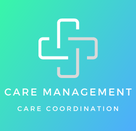
Discharge Planning and Transitional Care
Many vulnerable patients discharged from hospitals and other care settings neglect to receive recommended follow-up outpatient care.
It can be complicated for those with limited resources to navigate their care through primary care physicians, specialists, other care providers and managing multiple medications. In addition to coordinating services and facilitating communication among the patient, family, caregivers and health care professionals, ACM case managers are ready to address factors leading to hospitalization such as SDOH.
The services we provide includes:
- Transition from the inpatient setting back to home often results in poor care coordination, including communication lapses between inpatient and outpatient providers; medication changes; incomplete diagnostic work-ups; and inadequate patient & caregiver understanding of medication and additional follow-up care.
- We understand the need for high-quality transitional care management services which is critical for older adults with multiple chronic conditions and complex care, who require meticulous continuity of care as they move frequently between care settings.
- Our transitional care team develops a strategy for ensuring an accurate provider understanding of the patient medication list, plan of care, and follow-up plan during a patient care transition.
- ACM Care Coordinators understand each transition of care presents a new risk for miscommunication, duplication of services, medical errors. We work with patient care team to close any gaps in communication and be present during transitions of care.
- We Identify barriers (actual or potential) to the transfer of accurate patient information from the sending organization to the ultimate patient destination.
- Visiting high-risk members who are at high risk for poor outcomes on a regular basis to streamline member plans of care and coordinate their care to prevent hospitalization and readmission.
- Assessing patients’ health goals and needs
- Design a collaborative, evidence-based transitional care plan for when patients leave the inpatient and transfer to a different care setting or home.
- Visiting or, later, phoning patients at home regularly after discharge to make sure continued stability.
- Educating patients and caregivers about symptom management based on established care plan and accessing needed community and social services.
- Advocating for patients with multiple care providers to obtain services and equipment.
- Continually reassessing the patient’s status with the patient, themselves, caregivers, and primary care providers.
- Being available by phone and in person seven days a week including weekends.
